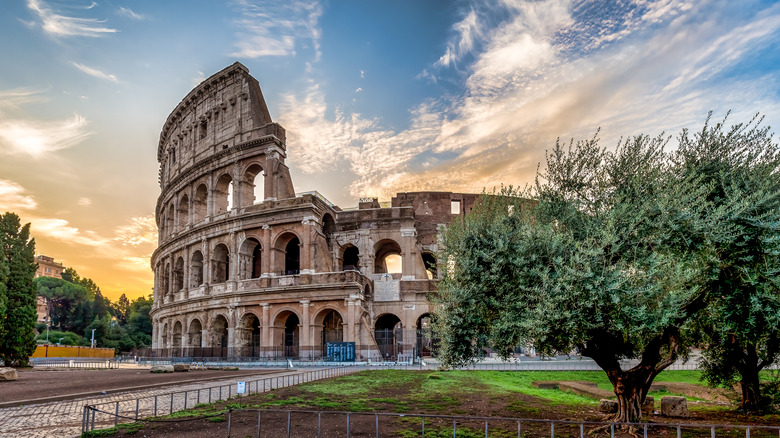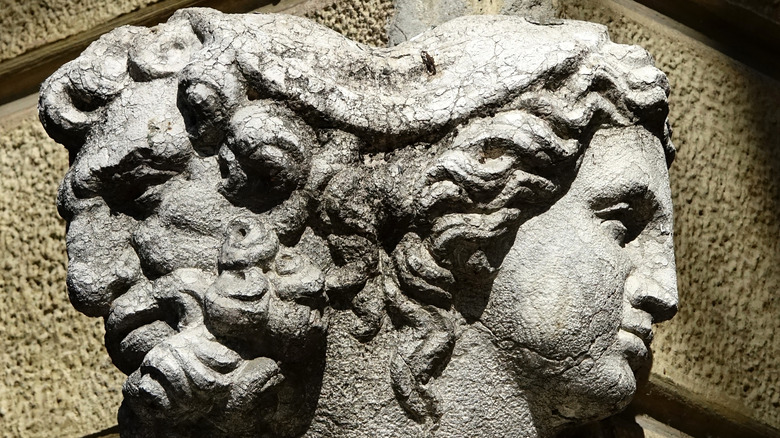The Story Of Cardea: The Goddess Of Door Hinges
Ancient mythologies have names of gods and goddesses that can be recognized even in today's world. Gods like Zeus, Athena, and Poseidon are all familiar to almost everyone, at least in the Western World. But some gods — due to their obscurity — are not too well-known by most people, and the goddess Cardea is a prime example of that. After all, it would take a very talented author or storyteller to tell a thrilling tale of none other than the goddess of ... door hinges?
This lesser-known tale in Roman mythology is quite odd, but at the time, Cardea was seen as an important god back in the day (via "Naming the Goddess"). The goddess that protected children from home invaders of the supernatural during the night while at the same time representing the center of the Earth, Cardea was very important to Ancient Romans back in the day. Yet the story on how she came to be is even odder than what she represents.
Not-So-Flattering Circumstances
Her story begins with the god Janus, the god that was responsible for time, creation, beginnings, and seeing past and future, according to GreekMythology.com. In fact, it was actually Janus who used to represent doors. Except, in this case, it wasn't the same way as Cardea used door hinges as her symbol. Janus used doors, gates, and entrances as ways to symbolize new beginnings in life, and he was the one who granted Cardea the power of a goddess and gave her the symbol of door hinges.
Janus was actually pursuing Cardea and attempting to court her, but she rejected him and tried to trick Janus by telling him to go to a cave with her, where she attempted to escape from him. She ultimately failed, and Janus got what he wanted from her. He then bestowed the power of being the goddess of doors to Cardea and stated that her mission was to defend homes from evil. She was also gifted a hawthorn shrub, which would be utilized by people who worshipped her.
A Story for Everything
People in Rome would join in celebrating Cardea by eating pork and beans every June 1, and people would often put hawthorn branches in their children's rooms as ways of protecting them from what they believed to be evil spirits (via "Naming the Goddess"). It was not uncommon for these symbols to be hung above baby cradles. But Cardea may represent something more in the big picture of things, given the origin of her name.
In Latin, "cardio," the root word of her name, can also represent poles and the axis of the Earth. It is believed by some that Cardea also represented the center of the Earth itself, perhaps as a way to keep spirits from the entire mortal plane (per Cardea Home). Though it may never be known exactly how she was worshipped, it is still interesting to see how the Romans had a story behind everything, from thunderstorms to door hinges.


